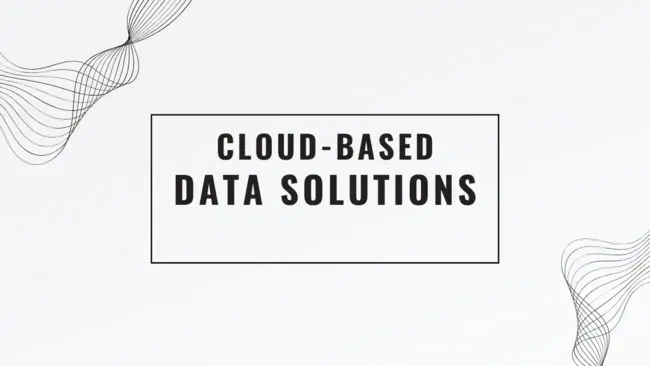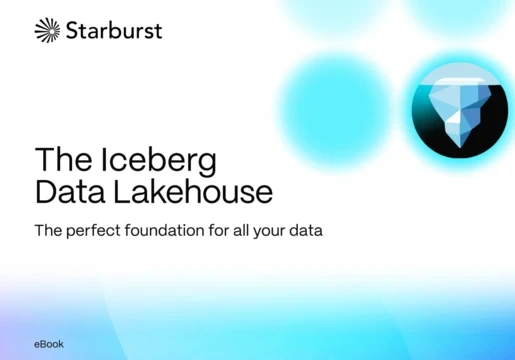Cloud computing facilitates user-friendly collaborative environments. It allows companies to enhance multidisciplinary workflows through quick report sharing, automated insight reporting, and advanced data protection features. This post elaborates on why cloud-based data solutions have become a game-changer for modern businesses.

What is a Cloud-based Data Solution?
It is a technology leveraging multiple servers for computing and analytics processes while providing unified interfaces for seamless user experiences. Therefore, companies can change resource requirements and generate relevant reports ad hoc.
Some cloud storage platforms also support third-party application programming interfaces (APIs) to augment their initial capabilities. On the other hand, professional data solutions can offer native connectors for cross-platform data transfer, processing, and visualization. Finally, a self-service cloud ecosystem will rely on users’ technological skills and willingness to learn coding techniques. However, no-code cloud environments have increased, focusing on specific data operations.
Which Industries Benefit from Cloud Data Solutions?
1. Education
Educational institutions can digitalize students’ learning resources, examination sessions, and progress reports. They can also offer immediate alerts to parents wanting a detailed breakdown of children’s aptitudes. Moreover, educators can aggregate district or state-level literacy metrics to formulate curriculum revision strategies.
2. Health and Life Sciences
Healthcare organizations can benefit from data consulting for cloud-based electronic health records (EHR) solutions. They can empower doctors and non-medical staff with digital blood and tissue sample testing reports. Those documents can become available for patients’ loved ones through mobile apps or dynamic web dashboards.
Sensors monitoring the variations in a patient’s vitals during the treatment can share insights with nurses and clinicians. Moreover, hospitals can collaborate with medical research teams to devise a superior treatment regime for patients with rare disorders. They can do so only after recording the patient's or family member's consent for clinical data transfer.
3. Manufacturing
Companies can develop a central repository to democratize all product design specifications and quality compliance standards. Stakeholders will utilize cloud-based data solutions for engineering, inventory tracking, product usage insights, and distribution management. Therefore, managers will effectively coordinate all workers and suppliers through digital means.
4. Transportation
Cloud-based programs let tourism, import-export, and courier businesses monitor stakeholders. They can ensure travelers follow the recommended routes, suppliers deliver shipments as per schedules, and recipients get their orders fast. Simultaneously, corporations can optimize fuel efficiency, vehicle maintenance routine, and travel safety measures using cloud-powered continuous data aggregation.
What Makes Cloud-based Data Solutions a Game-Changer for Businesses?
1. Extensive Automation
Cloud platforms include automatic storage analysis and optimization facilities. They utilize computers more powerful than a standard office desktop for parallel processing. Furthermore, you can explore their tech customization documentation. Later, your developers can extend or restrict the data automation capabilities.
2. Resource Optimization
All cloud-based data solutions can predict computing resource requirements and adjust allocated storage or processing effort if a client organization’s data scope changes. As a result, you can increase efficiency without budget overruns. Several cloud providers also calculate billing components based on actual resource consumption.
3. Scalability
Upgrading on-premises data systems requires significant compatibility troubleshooting. Meanwhile, cloud platforms let companies make remarkable configuration enhancements using one-click experiences. The provider will manage all the hardware-related liabilities.
4. Standardization
Predefined reporting formats will increase standardization across documentation activities. Therefore, communication will be more effective, while meetings and reporting workflows will be brief yet precise. While employees can retain a customized dashboard view in their profiles, the core data presentation style will remain unchanged.
5. Enhanced Cybersecurity
Data partners specializing in cloud-based solutions want to reduce downtime as much as possible to deliver stable and 24/7 accessible experiences. The client enterprises will choose their competitors’ offerings if cloud partners do not fulfill this ease-of-access demand. Therefore, cloud platforms are committed to integrating the latest data protection and encryption methods for governance improvements.
Conclusion
Thanks to cloud technology, innovative remote computing and real-time data streaming have decreased the delays modern businesses would encounter. Besides, novel approaches like data fabrics and edge computing extend the scope of cloud-led digital transformation efforts at global enterprises.
Today, established companies, alongside startups in education, transportation, healthcare, and manufacturing, want to embrace cloud computing.
They recognize the business value of scalable and automation-friendly virtualized data operations. Likewise, governments explore cloud applications for e-governance initiatives. So, the cloud-based data solutions are here to stay, empowering corporate and administrative leaders to streamline processes for better outcomes.







Comments ( 0 )